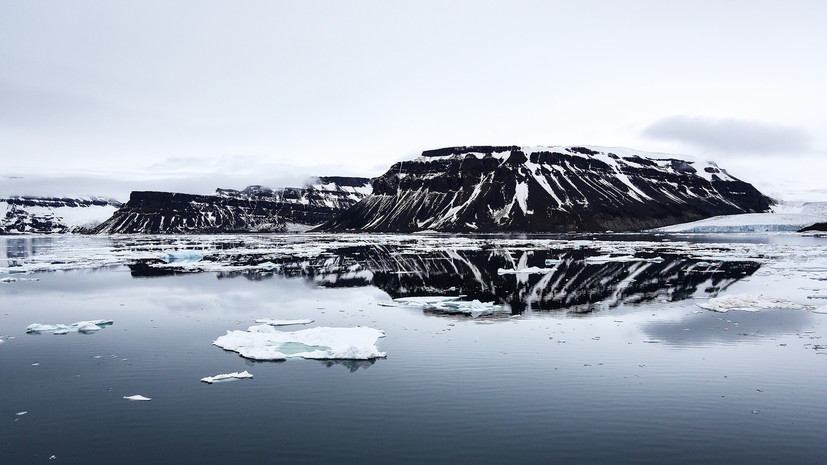The hydrographic group of the Northern Fleet has confirmed the discovery of five new islands. They are located in Vise Bay in the Kara Sea. This was reported by the press service of the Northern Fleet.
The group that discovered the islands acts as part of the Integrated Expedition SF to the Franz Josef Land archipelago. The islands are located on the Kara coast of the island of the Northern archipelago of Novaya Zemlya in the area of the Vylki glacier (Nansen).
“The hydrographic group of the Northern Fleet, operating as part of the Integrated Expedition SF to the Franz Josef Land archipelago, confirmed the discovery of five islands. They are located in Vise Bay on the Kara coast of the island of Northern Archipelago Novaya Zemlya in the area of the Vylki glacier (Nansen). The area of the objects varies from 900 to 54,500 square meters, ”the Northern Fleet said in a statement.
It is noted that a topographic survey was carried out on the new islands, they are described in detail and photographed.
The territories were first noticed in 2016 when analyzing satellite images. Hydrographs believe that the island was previously hidden by a glacier.
It is noteworthy that the participants of the expedition of the Northern Fleet piled a memorable hury on one of the islands. They included a note on the discovery, a memorial pennant dedicated to the upcoming 100th anniversary of the Northern Fleet’s hydrographic service, and an impromptu “time capsule”, in which a CD with photographs of participants in the discovery of the islands on the ground was placed.
On the paths of the discoverers
The expedition of the Northern Fleet began on August 15, when the Altai rescue tugboat left Severomorsk. The mission is carried out jointly with the Center of the Russian Geographical Society of the Northern Fleet, its participants must pass through the Kara Sea at the eastern Novaya Zemlya archipelago.
Project participants move along the routes of the discoverers and explorers of the archipelago Julius Payer, Frederick Jackson, Evlin Baldwin, George Brusilov and others. Scientists are engaged in scientific and environmental research, as well as studying objects of the military infrastructure of the Soviet period. In addition, on their way there are traces of the stay of expeditions of past centuries.
To date, the expedition has traveled about two thousand miles in the Barents and Kara Seas. During the mission, in particular, the remains of the weather station destroyed in 1943 by the German submarine U-711 were investigated and a number of memorial sites associated with their discoverers were examined.
In 2015-2018, hydrograph specialists of the Northern Fleet discovered more than 30 new capes, bays and islands in the area of the Franz Josef Land and Novaya Zemlya archipelagos. The remote sensing data that they used to track the status of the coastline helped them in this.
Commenting on these events in an interview with RT, the honorary polar explorer of Russia Viktor Boyarsky explained that the discoveries were due to the melting of the glaciers.
“We observe such phenomena in connection with the degradation of glaciers, and what used to be considered a glacier is now considered an island. Discoveries occur precisely because glaciers retreat and expose new formations. When the glaciers go back, all these islands will be closed, ”said the expert.
“Imagine that everything was covered by a screen, and then, when this screen moved, it turned out that there are islands and some formations. We will write it down, and when the next generation does not find them, when the glaciers come again, they will know that there are islands discovered by our glorious hydrographs, ”he explained his point of view.
Boyarsky praised the work of hydrographs during the expedition. According to him, "military hydrographs have always been at the forefront of all work in the Arctic and Antarctic."
However, the expert notes that the open islands are beneficial in terms of geography and climate, but it is too early to talk about them as a valuable territorial acquisition.
“This is an important work that expands our knowledge. And from the practical point of view, it does not add us extra territories. If some deposits are discovered there, then it will be cool, but it’s too early to talk about practical benefits, ”Boyarsky believes.

